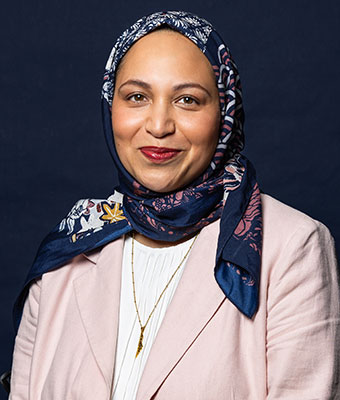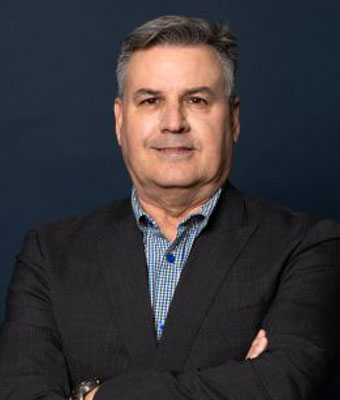MASTER OF PHILOSOPHY SPECIALISING IN INCLUSIVE INNOVATION
DRIVE NOVEL AND SUSTAINABLE SOLUTIONS FOR SOCIAL CHANGE
CREATE INNOVATIVE SOLUTIONS FOR AFRICAN CHALLENGES
Apply and enhance cutting edge knowledge and practice for addressing a specific social or environmental challenge.
Tired of only hearing the negative? Apply and join a powerful community of change-makers addressing some of Africa and the world’s most intractable challenges.
The MPhil in Inclusive Innovation will equip you to undertake research that changes systems, to develop innovative responses to complex systemic challenges, and to grow significantly both personally and professionally.
Delegates will:
- Gain skills in managing complex innovation-focussed projects.
- Learn to identify and improve multiple dimensions of social, environmental, political and entrepreneurial challenges.
- Explore business model innovations that are grounded in local realities and also globally relevant.
- Embark on a process of personal transformation within a community of practice committed to societal transformation.
- Be exposed to best-practice examples of inclusive innovation in South Africa and beyond.
- Benefit from the wider environment of networks and personal training at one of Africa’s leading sites of postgraduate learning.
- Complete original research within their passion area.
Apply and enhance your ability to enact serious change. Be part of the solution.
* Application & Course fees are provisional for 2026, and are subject to annual UCT council approval. If you would like more information on fees for this programme, click here.
uct gsb Mphil overview
Learn more about the annual term dates for the UCT GSB MPhil in Inclusive Innovation The UCT GSB MPhil in Inclusive Innovation takes place over a two year period including three core elements summarised by a final dissertation. Learn more about the UCT GSB Mphil Programme. Learn more about which attributes and qualifications are required for the UCT GSB MPhil in Inclusive Innovation. A step-by-step guide on how to apply for the UCT GSB MPhil in Inclusive Innovation. The UCT GSB MPhil in Inclusive Innovation curriculum is structured around three main components with a dissertation due within 2 years of registration.
WHAT OUR ALUMNI SAY
Join a transformative learning journey
The MPhil develops inclusive innovators who boldly pursue ambitious ideas and dreams while doing meaningful and purposeful work in a focused and supportive environment.
FREQUENTLY ASKED QUESTIONS
The MPhil in Inclusive Innovation is a modular degree so students must be able to attend full-time at the UCT GSB campus in Cape Town for four modules, of one week each, during the first year.
The MPhil in Inclusive Innovation programme offers a degree by dissertation only. This means that the dissertation is the only formally examinable deliverable. However, the programme does require full participation the four modules that offer lectures and workshops designed to strengthen your research skills and to deepen your capacity for practical innovation.
Students will also need to ensure that there is sufficient time and space in their schedule to accommodate inter-modular preparation work and submit deliverables between each module. Deliverables will be evaluated for quality, though not formally examined. Module attendance and timely submission of all deliverables are formal DP (duly performed) requirements for maintaining good standing in the programme. Students who do not meet these requirements will be asked to leave the programme and will not be allowed to submit dissertations.
Final dissertations must be submitted within two years of registration.
The MPhil in Inclusive Innovation dissertation counts 180 credits - representing 1 800 hours of learning. Exact distribution of hours will vary, depending on the nature of your research project, but you can use the following breakdown as a rule of thumb.
| ACTIVITY | HOURS |
| Developing your research project and skills via module attendance, module readings, DP assignments | 400 |
| Preparing your research proposal (including research plan, preliminary literature review & methods, ethics forms, etc.) | 200 |
| Data collection and analysis | 600 |
| Writing dissertation chapters (drafts, review meetings, revisions) | 600 |
| TOTAL | 1800 |
The biggest difference between this degree and most other Master’s programmes is social purpose. The MPhil specialising in Inclusive Innovation addresses social challenges by providing students with the opportunity to do really meaningful and purposeful work in a focussed and supportive environment. Some other programmes only provide the skills for higher level management roles whereas the MPhil programme marries theory and practice to enable students to bring their innovations to life.
Inclusive innovation is simply the development of new products or processes (or a combination thereof) that improve the lives of those living with the lowest incomes. We examine a number of definitions on the course, including Phylis et al (2008) “… a novel solution to a problem that is more effective, efficient, sustainable, or just than existing solutions and for which the value created accrues primarily to society as a whole rather than private individuals”; Westley (2010) “… an initiative, product or process or program that profoundly changes the basic routines, resource and authority flows or beliefs of any social system”; and George et al (2012) “… the development and implementation of new ideas which aspire to create opportunities that enhance social and economic wellbeing for disenfranchised members of society.”
MPhil students are encouraged to work on an innovation that they feel addresses social needs and ultimately relieves poverty across various sectors.
UCT owns all students’ research upon completion and it is shared on an open platform with the public. However, your business idea is yours to pursue in your own capacity. If you have any concerns or questions about Intellectual Property, you may contact the UCT IP office. Click here for more information.
Yes, you may. This programme will provide you with the skills to develop your innovation further; to design your business plan in a way that fits the demands of a social environment and the tools to help you build a sustainable business.
Yes, you may. Not all students wish to start their own business after completing the MPhil in Inclusive Innovation, some students would like to implement their innovation in their current place of work to address an issue that they feel needs to be addressed
Yes, you may. Sometimes the idea you may have had when applying has changed since starting the course or perhaps with some research you found a different area you would like to pursue, and you may do so.
You can locate a supervisor on the GSB website where a list of all academic staff is available with each academic's area of expertise. You may contact a supervisor who you feel would be able to offer support with your area of research. As our programme does not start off with the research component at the beginning, you are not required to have a supervisor already before the start of the academic year.
The GSB has an extensive network both locally and globally in the field of inclusive innovation, and we frequently facilitate introductions for our students.
During the programme you will have access to industry experts and key local and global specialists - from deep-content experts to market professionals working in the community. Their insight and feedback will help you to improve your solutions.
You will also have the opportunity to connect with like-minded professionals across different industries and build your network.
Once you graduate from the UCT GSB you will join our alumni network which is a dynamic forum comprising more than 23 000 past GSB students in 68 countries worldwide. Many of the GSB’s alumni hold key positions in top companies or have started their own successful businesses. Alumni play a vital role in supporting and encouraging more recent graduates to follow in their footsteps and GSB students who find employment after graduation - particularly internationally - frequently do so through alumni contacts.
Learn with the best
Our Internationally acclaimed researchers and teachers are all dedicated and gifted individuals who contribute directly to UCT GSB's reputation of excellence.

Programme Director


Head: Recruitment and Admissions
TAKE THE FIRST STEP TODAY
Acquire new competencies and move your career to the next level!
Ideas Exchange

Trump’s USAID Freeze: A Wake-Up Call for South Africa’s Aid Sector
Kay Lala-Sides, an MPhil Inclusive Innovation graduate and PhD candidate at the UCT Graduate School of Business, examines the impact of Donald Trump’s suspension of USAID funding to South Africa and what it means for local organisations. With donor scrutiny increasing, she highlights the urgent need for stronger governance, strategic fund management, and accountable leadership to ensure aid effectiveness. Can South Africa’s social sector rise to the challenge?
Read Article
Rebuilding the SA economy more sustainably — and for greater impact
COVID-19 has devastated the economy, but it has also opened a window of opportunity for businesses to integrate smarter and more sustainable solutions into their day-to-day operations as they rebuild for the long-term.
Read Article